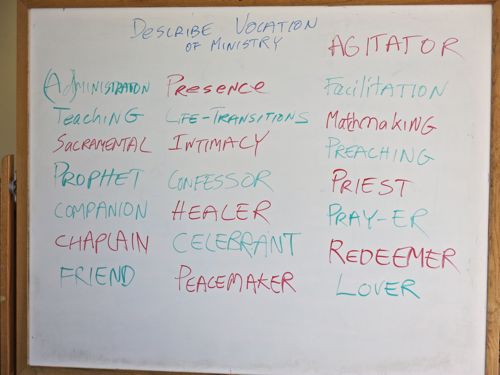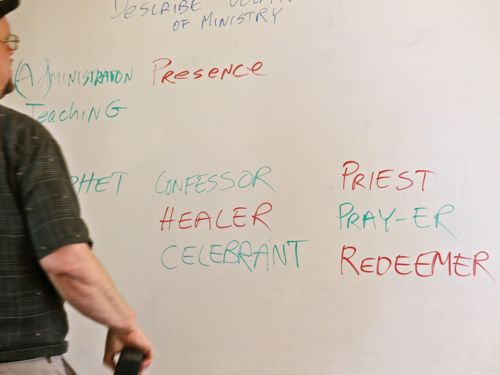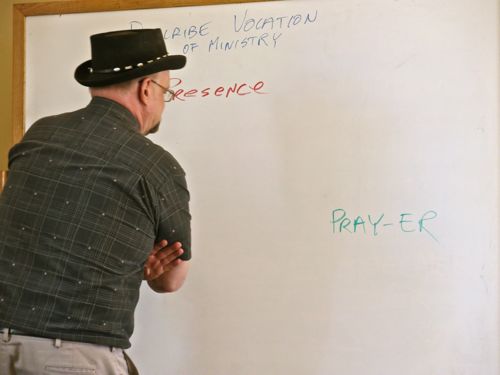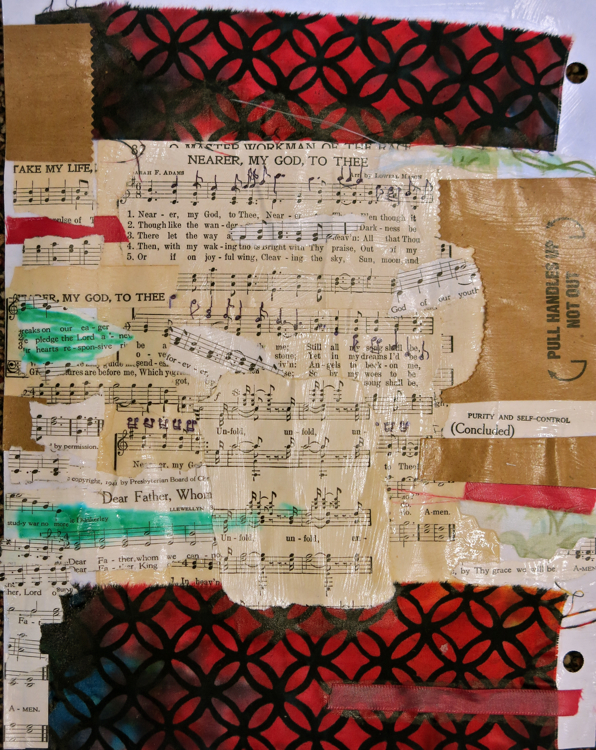Christy led a session at UNCO 14 on the vocation of ministry. First, he had us list everything that a minister does, or should do, or that people want them to do, under the heading of “Describe the vocation of ministry.”

We came up with: (Ad)ministration, Presence, Agitator, Facilitation, Teaching, Life-Transitions, Matchmaking, Sacramental, Intimacy, Preaching, Prophet, Confessor, Priest, Companion, Healer, Pray-er, Chaplain, Celebrant, Redeemer, Friend, Peacemaker, Lover.
Assuming one minister can’t do all those things, Christy said we had to choose one thing to take off the list. And then another thing to take off the list. Then another thing. And another thing.

Christy erased one thing after another from the list, until there was only one thing left…

…until the only thing that was left was “Presence.”
If there’s one thing a minister absolutely has to do, to be a minister, it is to show up and be present.

